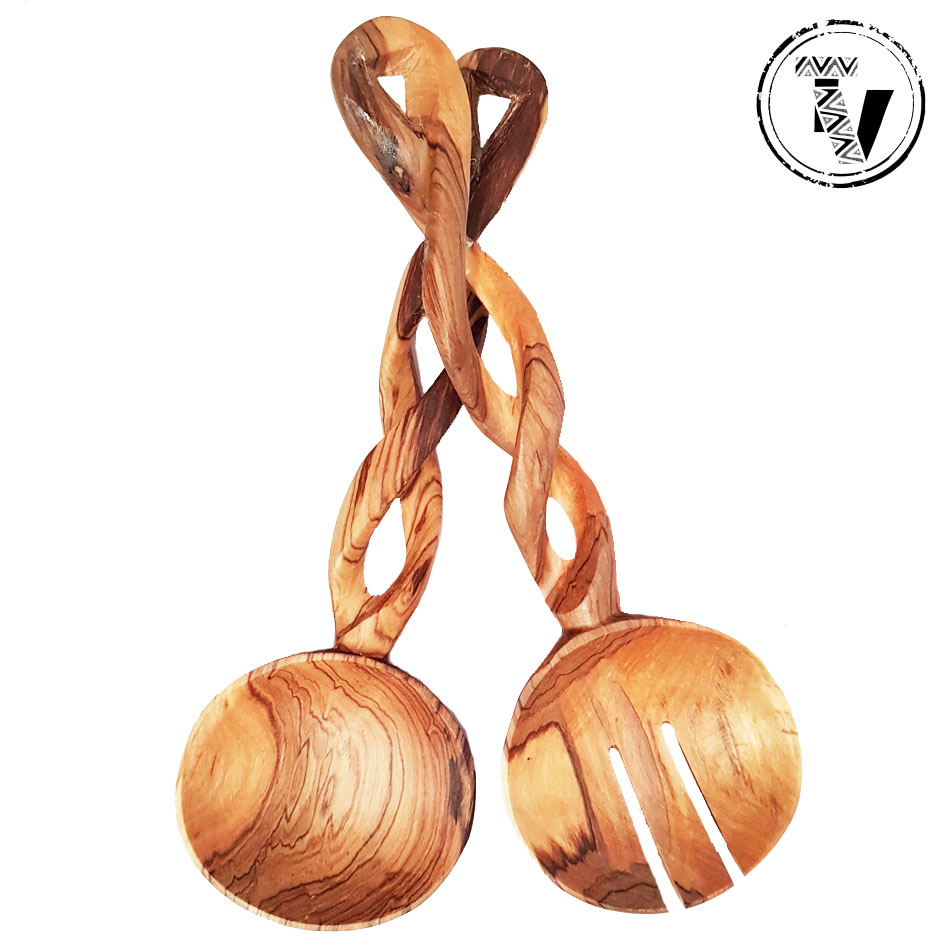Description
Twisted Olive Wood Servers
Wild olive wood is a preferred carving medium of Kenya’s Kamba woodcarvers.
With extreme precision, these talented men draw beautiful serving
pieces from the rich grain of this East African hardwood.
This particular design features wide scoops and beautifully twisted handles.
Durable and decorative, these spoons have earthy and natural forms
that will make them a unique and globally conscious addition to your kitchenware collection.
Due to handcrafting and the use of natural materials,
variations in size and wood grain should be expected.
Care Instructions: If necessary, use a cloth soaked in olive oil and rub the wood to keep it soft and strong.
This will keep the wood from cracking.
To clean, use water and mild soap but do not soak or submerge utensils in water.
Towel dry immediately after washing. Not dishwasher safe.
The Kamba or Akamba
people are a Bantu ethnic group – or tribe – who predominantly live in the area of Kenya stretching from Nairobi to Tsavo and north to Embu, in the southern part of the former Eastern Province.
This land is called Ukambani and constitutes Makueni County, Kitui County, and Machakos County.
They also form the second the largest ethnic group in 8 counties including Nairobi and Mombasa counties.
Sources vary on whether Kambas are the third, fourth, or fifth largest ethnic group in Kenya.
They comprise up to 11 percent of Kenya’s population.
They speak the Bantu Kikamba language as a mother tongue.
The total population of the Kamba stands at over 4.66 million.
They are also called Akamba or Wakamba.
The Kamba speaks the Kamba language (also known as Kikamba) as a mother tongue.
It belongs to the Bantu branch of the Niger-Congo language family.
Kikamba has no letters c, f, h, j, r, x, q and p in its alphabet.
The Swahili language reveals closer ties to the Akamba mother tongue,
this being due to the various interactions of the Akamba people with Arab traders for centuries.
